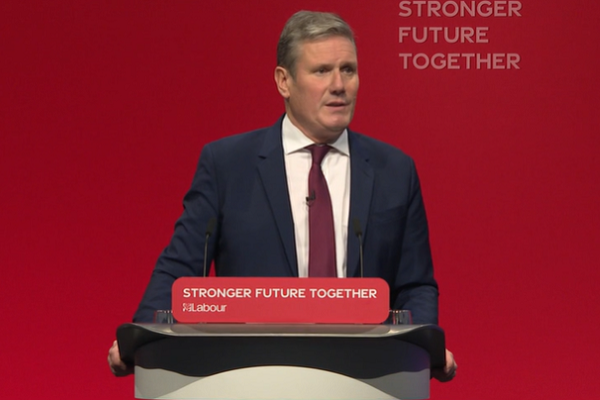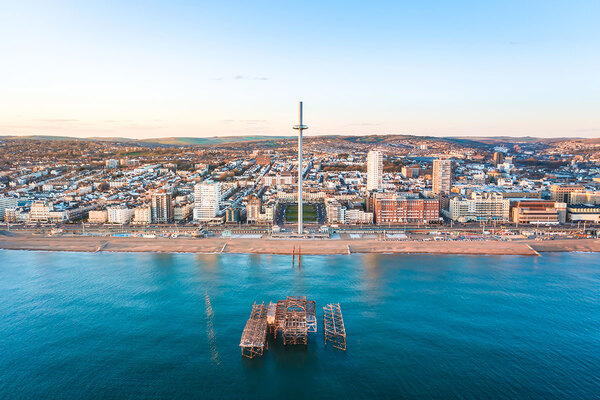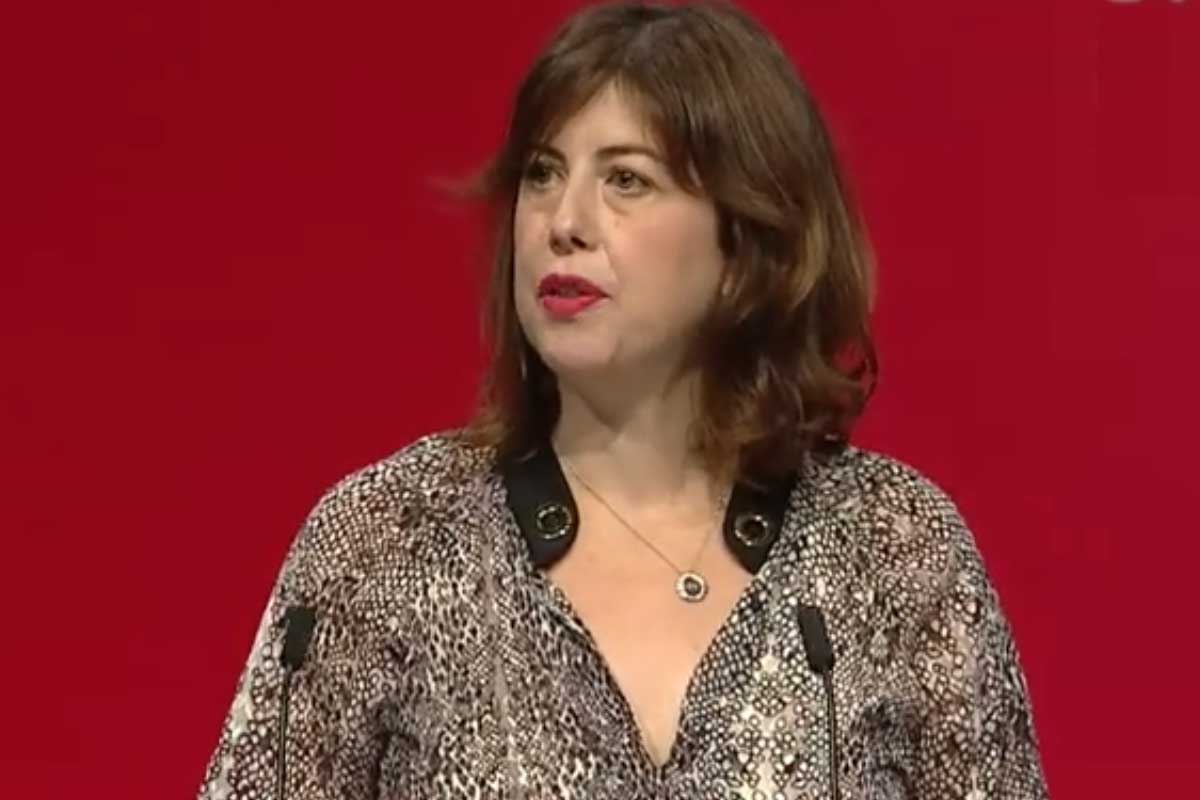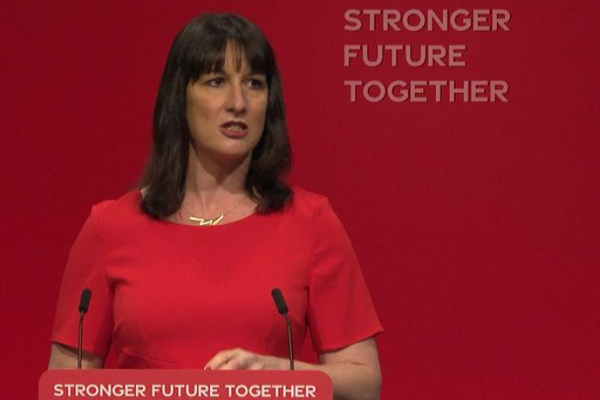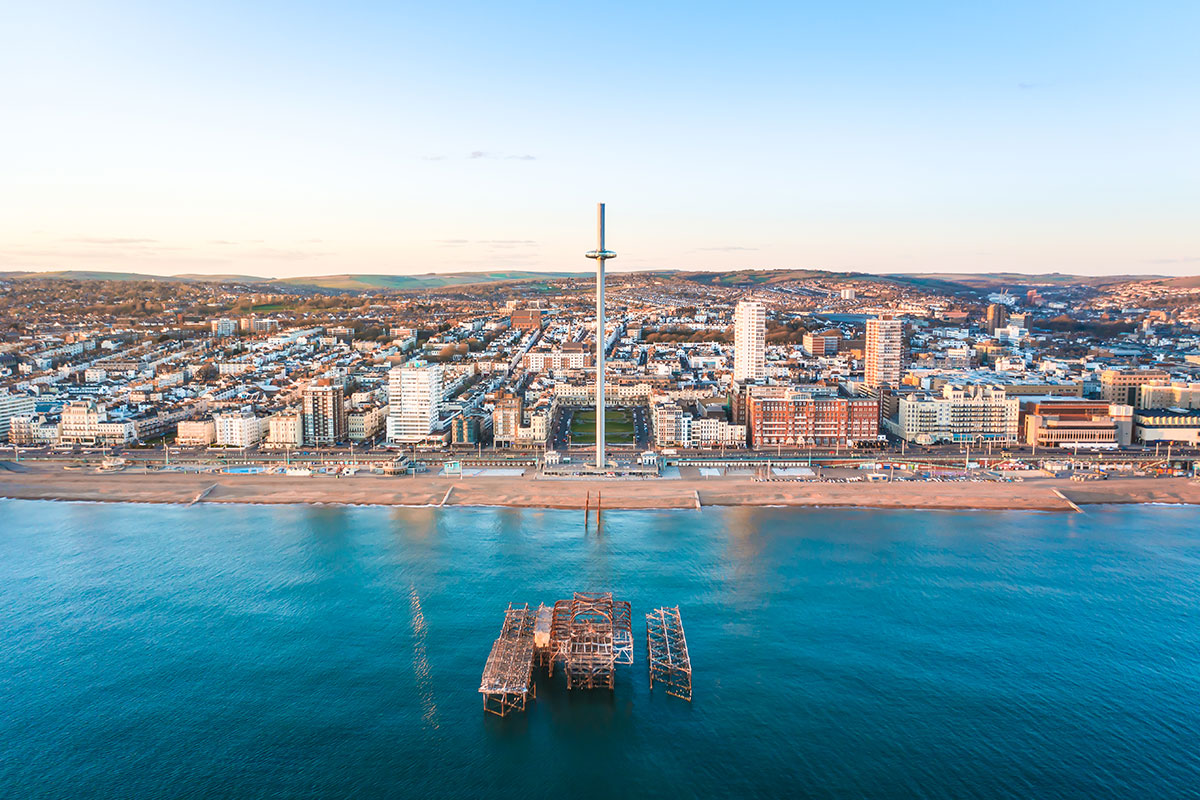Dispatches from the Labour Party conference 2021
This week the Labour Party descended on Brighton to host its annual conference. Lucie Heath reports on all the housing action
While infighting, internal party politics and the word ‘scum’ dominated national headlines throughout the Labour Party’s five days in Brighton, housing remained a key topic of interest behind the scenes.
As often is the case, it was omnipresent at the conference’s fringe (discussion sessions, often featuring senior speakers from the party). It also topped the priorities ballot, which takes place on the first day of the conference and sees delegates vote for which motions they would like to see debated during the event.
There has been much discussion about the direction in which Labour is heading politically, but how does this play out when it comes to housing policy? Inside Housing has rounded up the key takeaways from our time in Brighton.
“The party of homeowners and tenants”
On Sunday afternoon, shadow housing secretary Lucy Powell took to the stage to outline her party’s housing vision.
A number of the key policy announcements had been trailed to the media ahead of the conference, including plans to reform affordable rents to match 30% of average incomes and to give first-time buyers “first dibs” on new homes built in their area.
In her speech Ms Powell attempted to rebrand Labour as “the party of homeowners and tenants”, describing the Tories as “the party of speculators and developers”. She made repeated references to dwindling homeownership rates during fringe sessions and clearly plans to use this as a weapon against her new counterpart, Michael Gove, in parliament.
Following Ms Powell’s speech, delegates passed a bumper housing motion, which was still being debated late into Saturday night.
Among other things, the motion urges the party to demand the government build 150,000 social homes per year and end the Right to Buy. Many of the policies were lifted directly from Labour’s 2019 manifesto, but a call to enshrine housing as a human right into domestic law was new.
This does not immediately make it Labour policy. That decision rests with the National Policy Forum, which considers what to put into the manifesto.
Ms Powell’s speech and the subsequent motion went down well with the delegates Inside Housing spoke to, with one housing activist commenting that they felt there was nothing left for them to ask for.
Rachel Blake, deputy mayor of Tower Hamlets and member of the Labour Housing Group, told Inside Housing that “the party’s really listening” and that the policies are “exactly what we need to be hearing”.
Beyond the headlines, the policy that really got housing wonks talking was Ms Powell’s promise to “give local authorities new powers to buy and develop land” by “reforming arcane compensation rules”.
This would involve changing compulsory purchase rules so that councils can buy land at lower rates, rather than having to pay a speculative price based on what the land would be worth after it has been developed.
Tom Copley, deputy mayor for housing at the Greater London Authority, told Inside Housing this could be a “game-changer in terms of the delivery of more affordable housing and particularly more social and council homes”.
Labour has calculated that this move could generate up to 100,000 new homes a year.
While the CPO rules were enough to get local authorities excited, those working in housing associations seemed slightly underwhelmed by Ms Powell’s speech, with multiple people pointing out to Inside Housing that there was not much new in there for them.
The “biggest issue of our time”
Decarbonisation was by far the most popular topic for housing fringe events at this year’s conference: Inside Housing counted five sessions on this topic on Tuesday alone.
Announcements on this were left until Labour leader Sir Keir Starmer’s speech on Wednesday, during which he pledged a £6bn-a-year retrofit programme that would aim to upgrade 19 million homes over the next decade. The policy was billed as a cornerstone of Labour’s efforts to tackle climate change, which Sir Keir labelled “the biggest issue of our time”.
Labour’s retrofit policy is similar to the Warm Homes for All plan announced under previous leader Jeremy Corbyn and will be part of the party’s £28bn-a-year spend on climate change, which was outlined by shadow chancellor Rachel Reeves during her speech on Monday.
Ms Reeves’ pledge came as a surprise to shadow housing minister Mike Amesbury, who learned about it via a breaking news notification during a fringe session on net zero housing that was taking place at the same time. The only figure Mr Amesbury quoted during that session was Inside Housing’s research which found that the decarbonisation of social housing could cost the sector up to £104bn by 2050.
A Building Works Agency
Ms Powell also used her speech on Sunday to pitch Labour’s plan for ending the building safety crisis: a Building Works Agency that will “assess, fix and fund, and then certify all tall buildings” before pursuing those responsible for costs. The party would also legislate to make sure leaseholders did not have to pay for works, she said.
While this will undoubtedly be a popular policy with leaseholders embroiled in the scandal, it is likely that ears pricked at the use of the word “tall”. Does this mean Labour, like the current government, would continue to prioritise buildings taller than 18 metres?
When asked about this by Inside Housing, Mr Amesbury was clear that the answer is no.
He said the Building Works Agency will tackle the problem “building by building, block by block” and said the policy was inspired by a similar project in Victoria, Australia. He and his team have been in close contact with officials there and in the neighbouring state of New South Wales.

Some criticism of Labour’s plan came from Lewis Sidnick, director of corporate and external affairs at the National House Building Council (NHBC), who told a fringe session on Monday that he does not agree with the plan for state inspections as there is “no other sector that has to be state-run whether you take your car for an MOT or gas or electric”.
The NHBC provides warranties for buildings and offers private building control inspections.
Fellow panel member Ms Powell responded: “There has to be a level of rigour and independence in that and I think what we have seen over recent years that has led to not just the fire safety issues, but defect issues and other issues in the sector, is where there’s a too cozy and close relationship between the builder and the inspector.”
However, the policy of an opposition party less than two years into a parliamentary term will likely be of little comfort to those facing huge bills for fire remediation work now.
In the more immediate term, one of the main priorities of Labour’s shadow housing team is the Building Safety Bill, which is currently at the committee stage where MPs propose amendments. Mr Amesbury said he is currently going through the bill “line by line and clause by clause” and “trying to really focus on the amendments that may get things across the line in terms of rebellion and protecting innocent leaseholders”.
Who gets to build?
Housing associations have not always enjoyed the easiest relationship with the Labour Party, with some members feeling that social homes should predominantly be built and owned by councils.
This bias was evident in the party’s 2019 manifesto, which stated that 100,000 of the 150,000 social homes the party would develop annually would be done so by councils.
Placing councils at the heart of social housebuilding is clearly still high on Labour’s agenda as this manifesto pledge was repeated in the housing motion passed by delegates this week.
When asked by Inside Housing for her thoughts on this, especially given the fact that housing associations are currently better resourced than councils when it comes to developing homes, Ms Powell said: “I think we all agree that this isn’t a day one target. The capacity in the system is not something that can be met immediately.”
She said there is “now a real trend” of councils building up their development ambitions compared to 10 or 15 years ago, and added that there “are concerns about how easy it is to register as a social landlord if you are not actually a social landlord”.
“The biggest cut to the welfare state ever”
Labour didn’t have much new to say on Universal Credit, having already announced proposals to reform the benefit last month. The crux of the party’s plan involves allowing low-income workers in receipt of the benefit to keep more of what they earn, a pledge that was repeated by shadow work and pensions minister Jonathan Reynolds when he addressed conference on Monday.
Mr Reynold’s speech made no reference to the housing element of Universal Credit, likely because the government already fulfilled Labour’s 2019 manifesto promise of raising the Local Housing Allowance rate as part of its response to the pandemic.
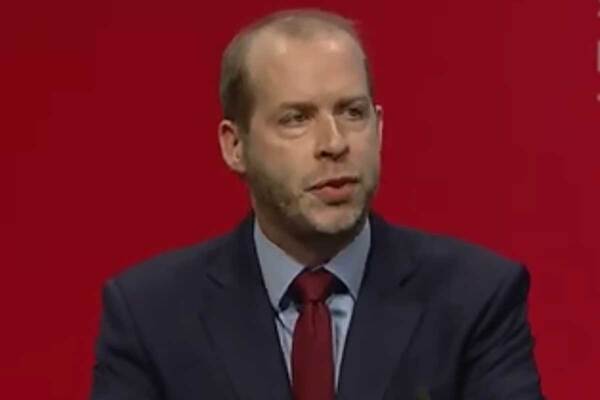
Instead Mr Reynolds used his speech to call on the government to halt plans to end the £20-a-week uplift to Universal Credit that was introduced during the first COVID-19 lockdown, calling the proposal “the biggest cut to the welfare state ever”.
Any discussion of Universal Credit and the shadow work and pensions team’s policies were soon overshadowed by the surprise resignation of Andy McDonald, shadow secretary of state for employment rights and protection, following a row over a £15 minimum wage.
Gove is all around us
Barely a fringe session went by in which Inside Housing didn’t hear an audience member take the opportunity to share their opinion on the new housing secretary, Michael Gove. Examples of such opinions included that Mr Gove “runs through government departments like Brighton runs through sticks of rock”.
Labour figures who Inside Housing spoke to expressed differing views on Mr Gove’s appointment, although everyone was unanimous in their anger about the removal of the words ‘local government’ from the newly named Department for Levelling Up, Housing and Communities.
Multiple people pointed out Mr Gove’s reputation for being a reformer willing to stand up to colleagues, which could be bad for the controversial planning changes that Labour opposes, but good for the building safety crisis, which everyone agrees needs to get sorted.
One senior Labour figure expressed their pleasure at the fact that such a high-profile politician was being given the housing brief, a symbol of how the issue has risen in importance within government.
As the person who will be facing Mr Gove at the dispatch box, how does Ms Powell feel about his appointment?
“Bring on Michael Gove,” she told a fringe session on Monday night. “I’ve taken on Michael Gove before and I’ll happily take him on again.”
It should make for good watching.
Labour conference 2021: headlines
Starmer pledges £60bn on retrofit programme
A Labour government would spend £6bn a year on the retrofitting of housing over the next decade as part of a wide-ranging plan to tackle climate change, the party’s leader has said.
Labour members back conference pledge to build 150,000 social homes a year
Labour conference delegates have voted in favour of a housing motion that included the pledges to enshrine the right to housing in law and to build 150,000 social homes per year.
Labour proposes 'Building Works Agency' to 'assess, fix and fund' tall buildings
The Labour Party has pledged to create a “Building Works Agency” that will “assess, fix and certify” tall buildings and to legislate to ensure that leaseholders do not have to pay for building safety work.
Bringing gas boiler ban forward to 2023 not achievable, say housing associations
Housing associations have warned against calls to bring the Future Homes Standard forward to 2023, arguing that the target “would not be achievable for everyone” and that the “infrastructure isn’t there” to support it.
Labour may be trying to sound like Blair, but Corbyn's influence remains in its housing policy
The tenets of the previous leader’s housing policy have survived Keir Starmer’s change of direction. It is a sign of how the terms of the debate have changed, writes Jules Birch
